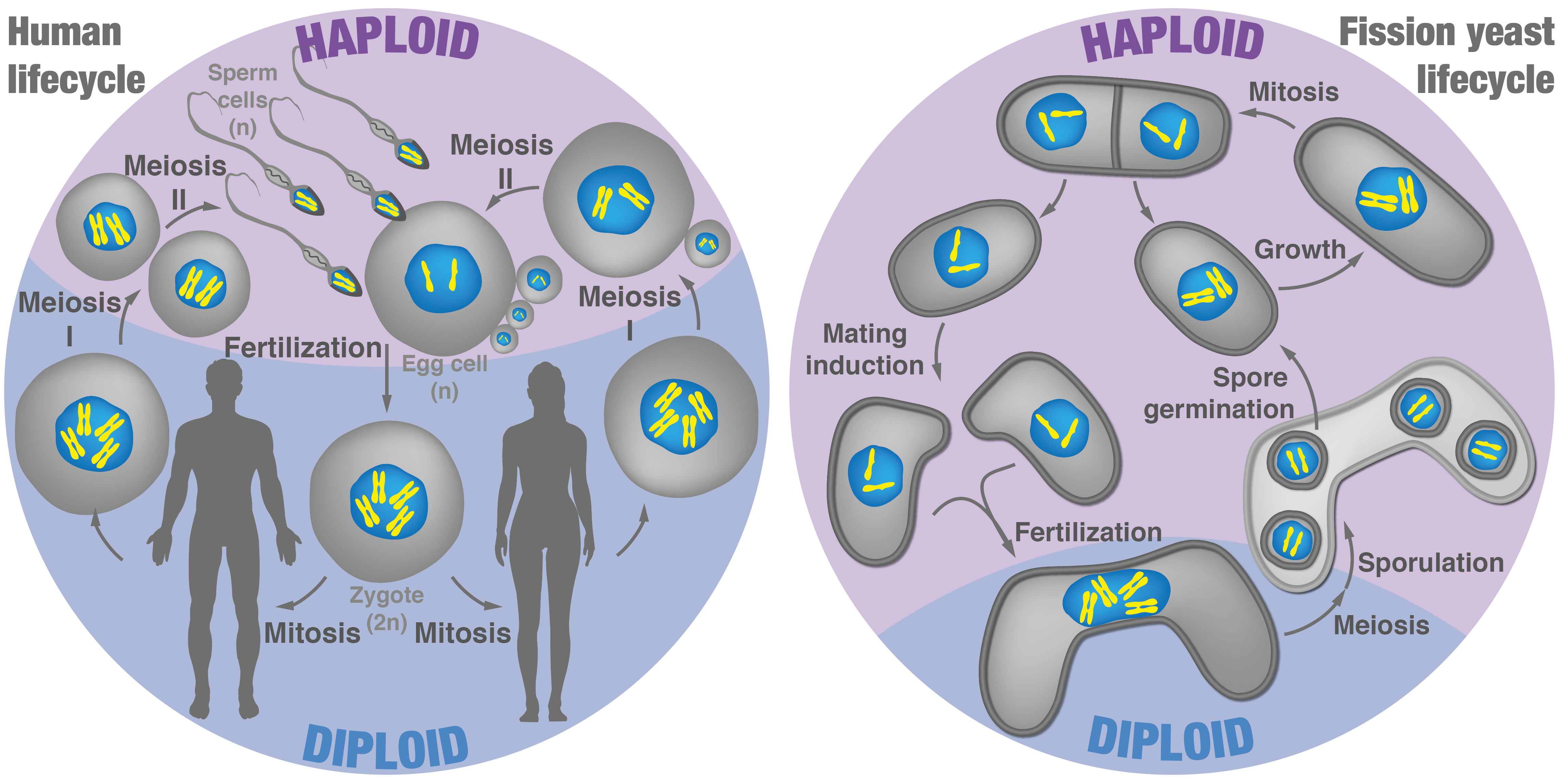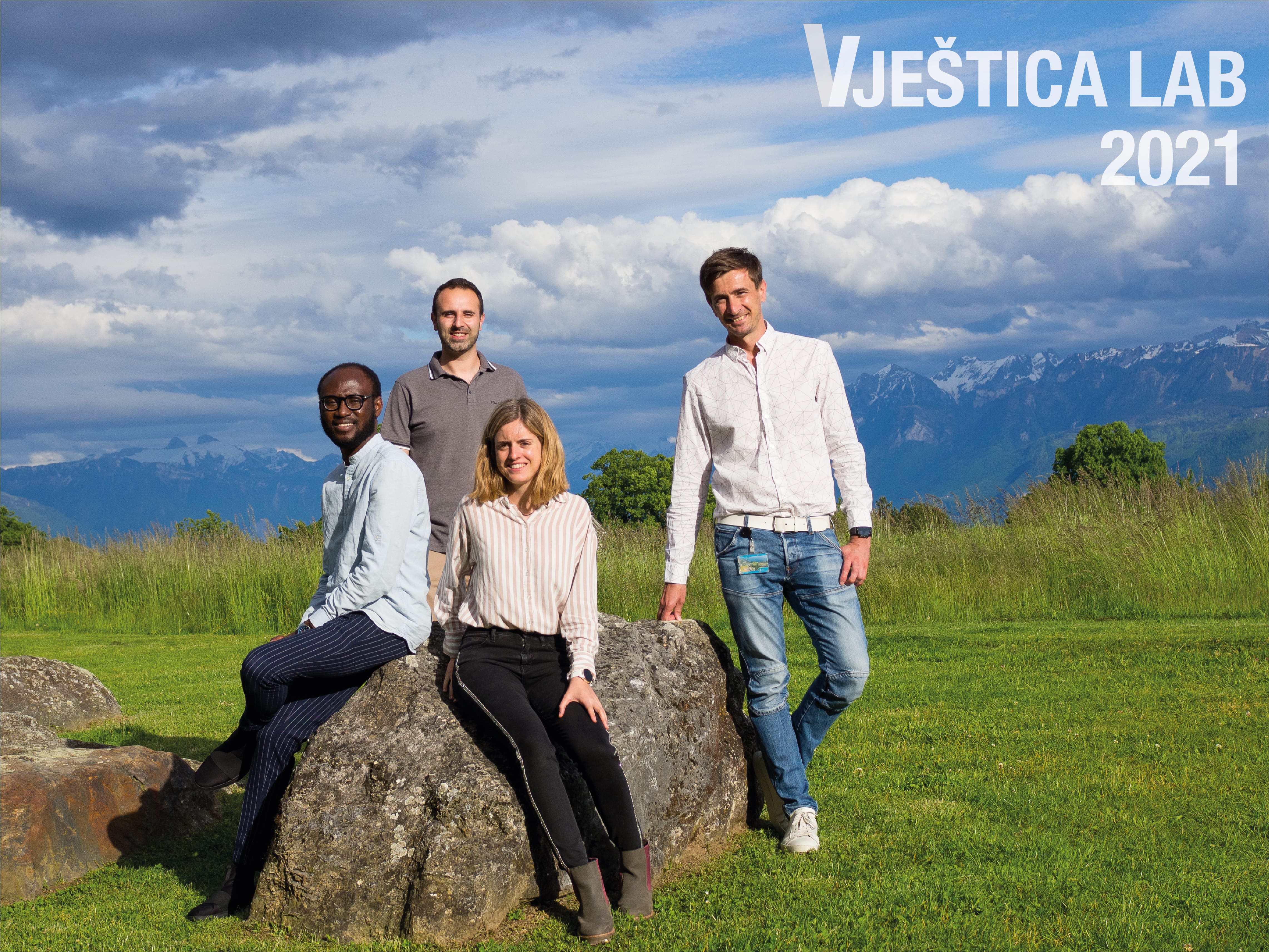For detailed information about our group, please visit the lab webpage.
Research overview
During sexual reproduction, highly specialized reproductive cells called gametes (e.g. sperm and egg cells) compete to find a partner. This competition has driven evolution of remarkable adaptations where behaviour, reproductive organs and gamete properties ensure reproductive success. However, as soon as two gametes fuse, the newly formed zygote must immediately change its physiology to prevent further mating and initiate development of a new individual. How fertilization triggers this gamete-to-zygote switch is a key question our group pursues.

The sexual lifecycle is principally identical across eukaryotes: Haploid gametes fuse to form a diploid zygote, which then undergoes meiotic divisions to produce the next generation of gametes. We rely on the relative simplicity of fission yeast Schizosaccharomyces pombe, and its powerful plethora of experimental approaches, to identify genes and mechanisms that drive the zygotic fate establishment.
For detailed information about our group, please visit the lab webpage.
Representative publications
Gerganova V., Lamas I., Rutkowski D.M., Vještica A., Castro D.G., Vincenzetti V., Vavylonis D., Martin S.G., Cell patterning by secretion-induced plasma membrane flows. Science advances, 7 (38) pp. eabg6718.


